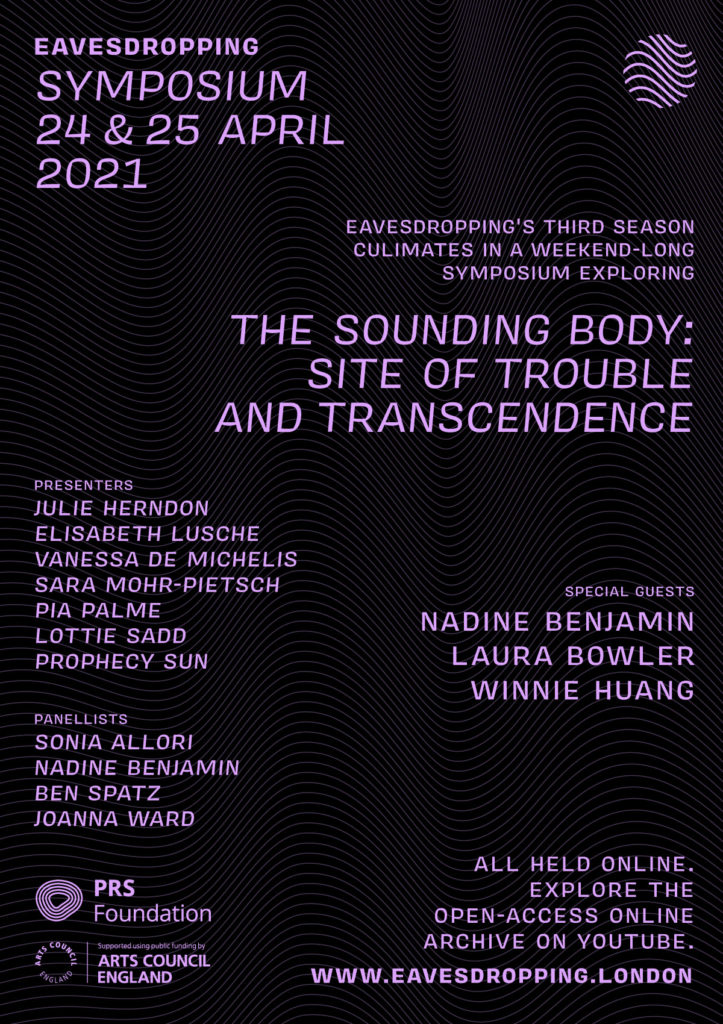Listening at the Crossroads of Cultural Work, Labour and Practice
This video is both an intro to my masters dissertation of homonymous title and a digital paper, crafted for the eavesdropping symposium 2021. If you are interested in my research but has no time/interest in reading 100 pages, this video is filled with dynamicly edited visual references crafted to illustrate the research in ways the actual written dissertation couldn’t.
KEYWORDS: Career, artistic myth, artistic practice, communities, cultural industry, collectives, social engaged practice, work, labour, sonic arts, migration studies, decolonial epistemologies, alternative career pathways, self-employment, artistic discourses and practices, sustainability, sonic cultures, sonic epistemologies, feminisms.
CROSSROADS (Oxford Dictionary)
(noun) plural in form but singular or plural in construction
1. An intersection of two or more roads.
2. A point at which a crucial decision must be made
which will have far-reaching consequences.
LA FRONTERA/BORDERLANDS
To survive the borderlands,
You must live sin fronteras. Be a crossroads.
Anzaldua (Anzaldúa, 1999a)
ABSTRACT: For some critics the historical ‘art world’ of artists and connoisseurs, has come to an end since postmodernism (Plagens, 2005). As an art practitioner and migrant worker, I wonder what impact, if any, this statement has on me. Since I moved to London from Brazil, concerns from other perspectives on the ‘art world’ occupy me. These include how to negotiate the privileges and tensions that arise when one is on the other side of the ‘colonial/modernity’; or how to balance London’s obsession with the ‘creative entrepreneur within’ with the reality of a art’s labour market that renders all, but the overachievers, invisible. In the face of such pressures, it is not surprising to be seeking for alternative perspectives. This dissertation examines the opportunities and tensions that arise from the consideration of artistic careers in the broader field of cultural work. First, the constitutive elements of ‘cultural work’ from the fields of sociology and organisational sciences are outlined. Subsequently, it unpacks the concepts of ‘work’, ‘labour’, and ‘practice’ as defined and problematized by the multitude of actors associated with cultural work, from large institutions to grassroots organisations. The research methods consisted of an autoethnographic approach in connection with the theoretical framework of border thinking. This particular combination was considered appropriate, since the phenomenon to be examined was the experience of migration as a trigger for a self-reflexive and critical view of ‘being an artist’. The findings show how this particular form of dislocation influenced the path to adopting a cultural work lens. Firstly, because it changed my locality within the power matrix of the ‘art world’, and secondly because it added a work-labour dimension to the interpretation of my practice’s roots in decolonial sound studies. The value of this work lies in exposing the complexities that emerge from viewing artistic practice in the broader sphere of cultural work. The conclusion that can be drawn, on the one hand, is that as a migrant artist I cannot decouple my practice from the broader regimes of work and labour. In contrast, despite these personal contingencies, through this perspective I am also accountable for the well-being and work conditions of many other agents, whether artists or not, in the broader field of cultural work. Therefore, although I draw mainly from personal experience to offer ways to meet the challenges, as the study shows, these are rarely unique or observed in isolation.

